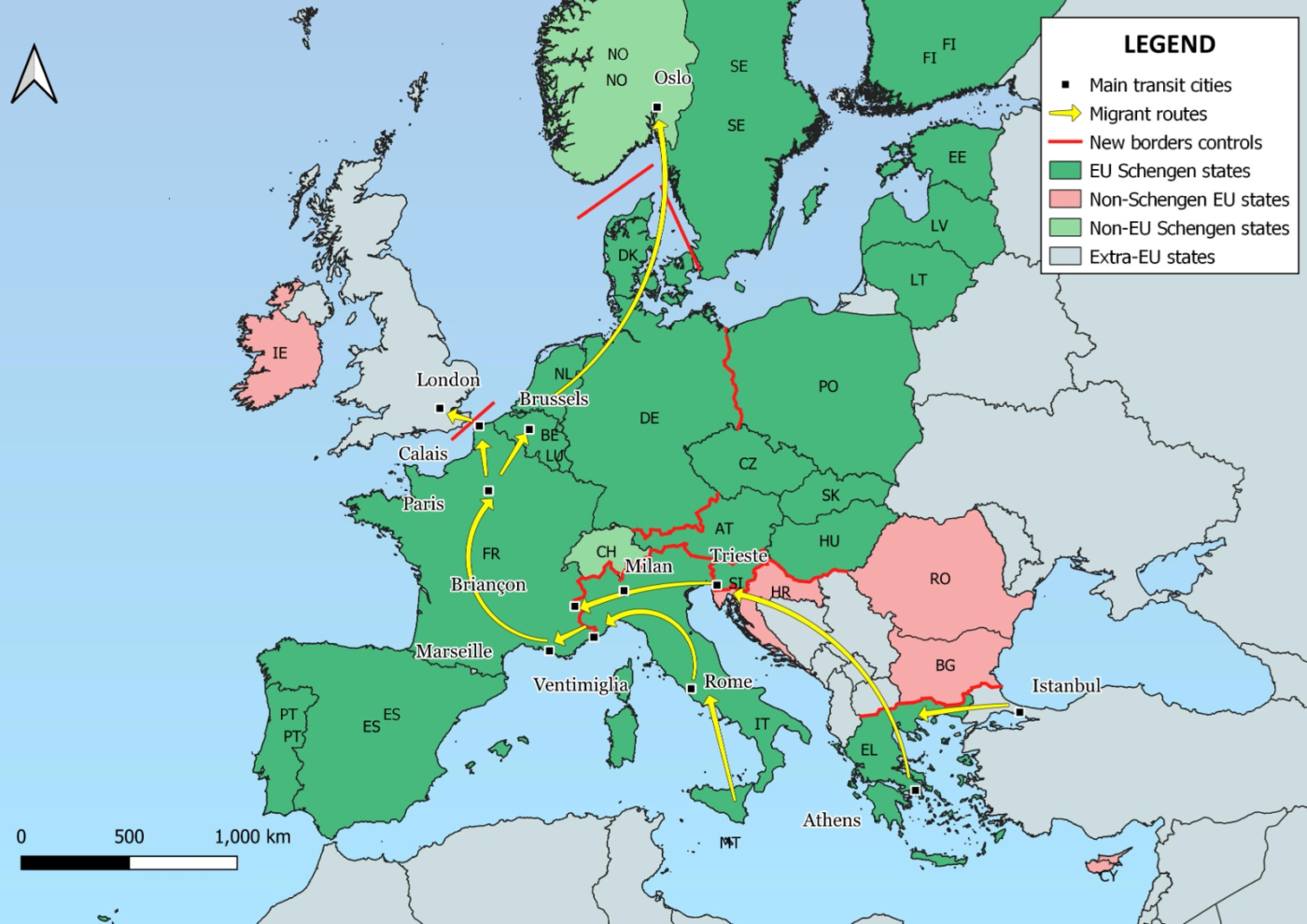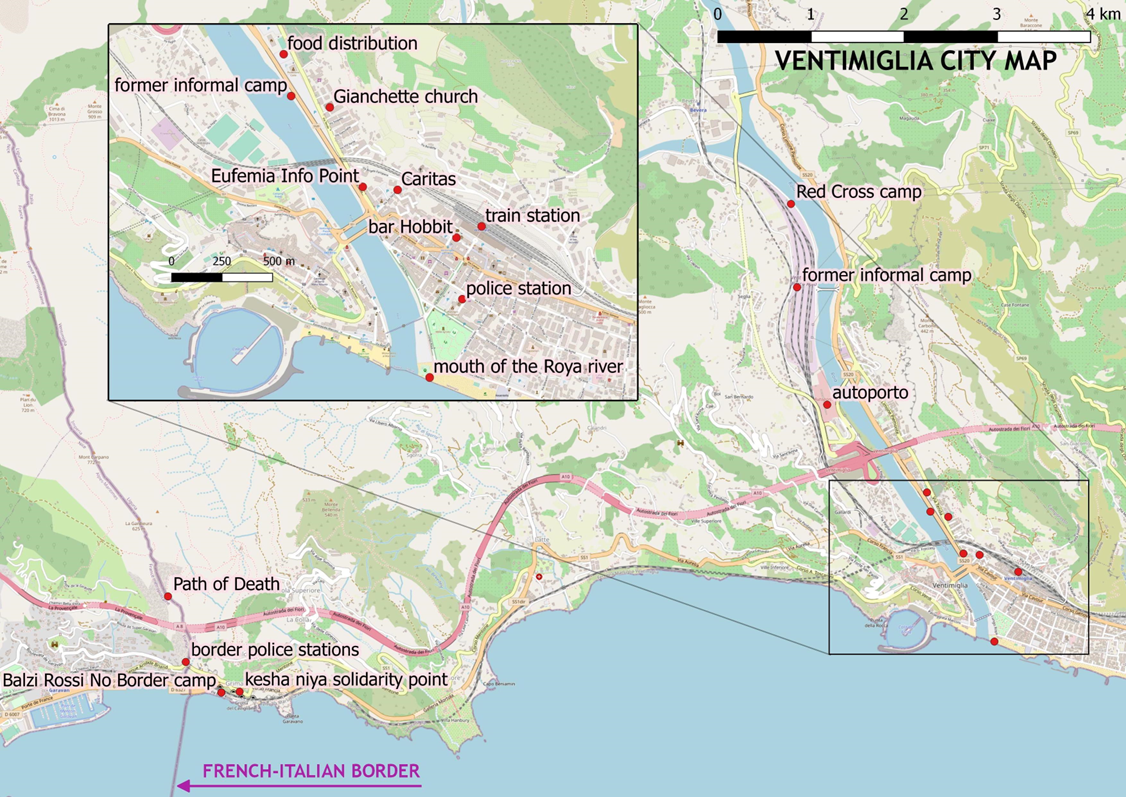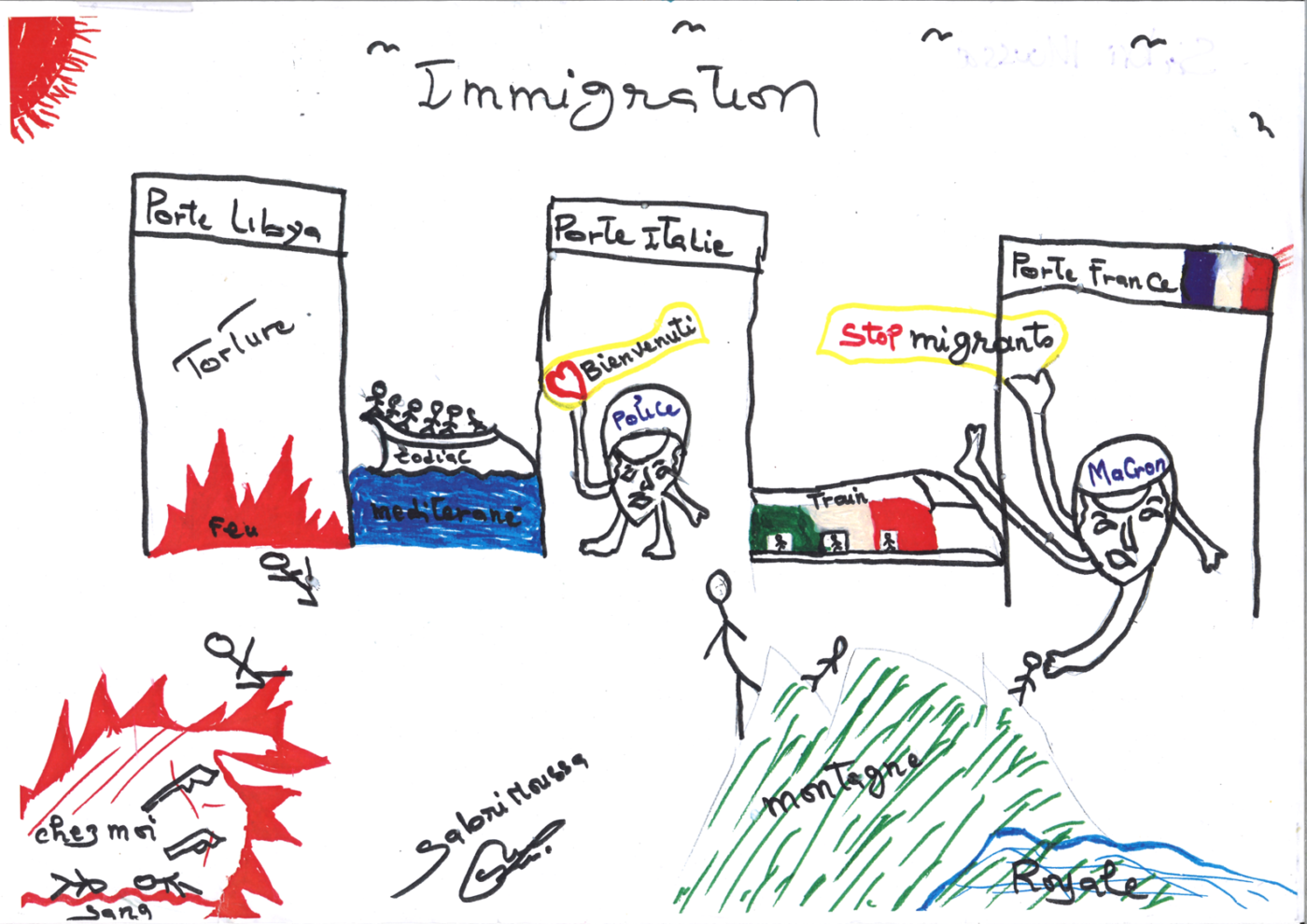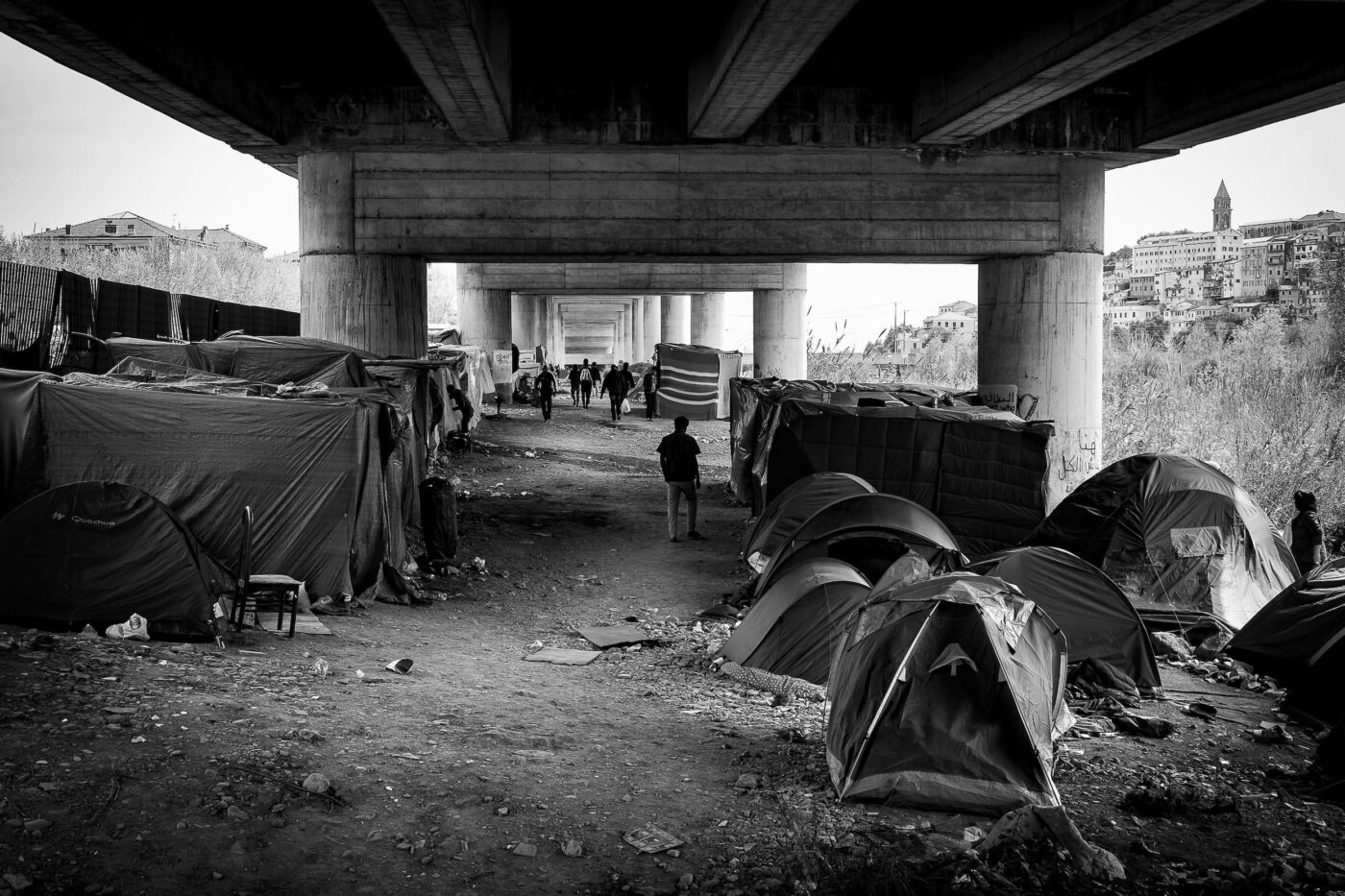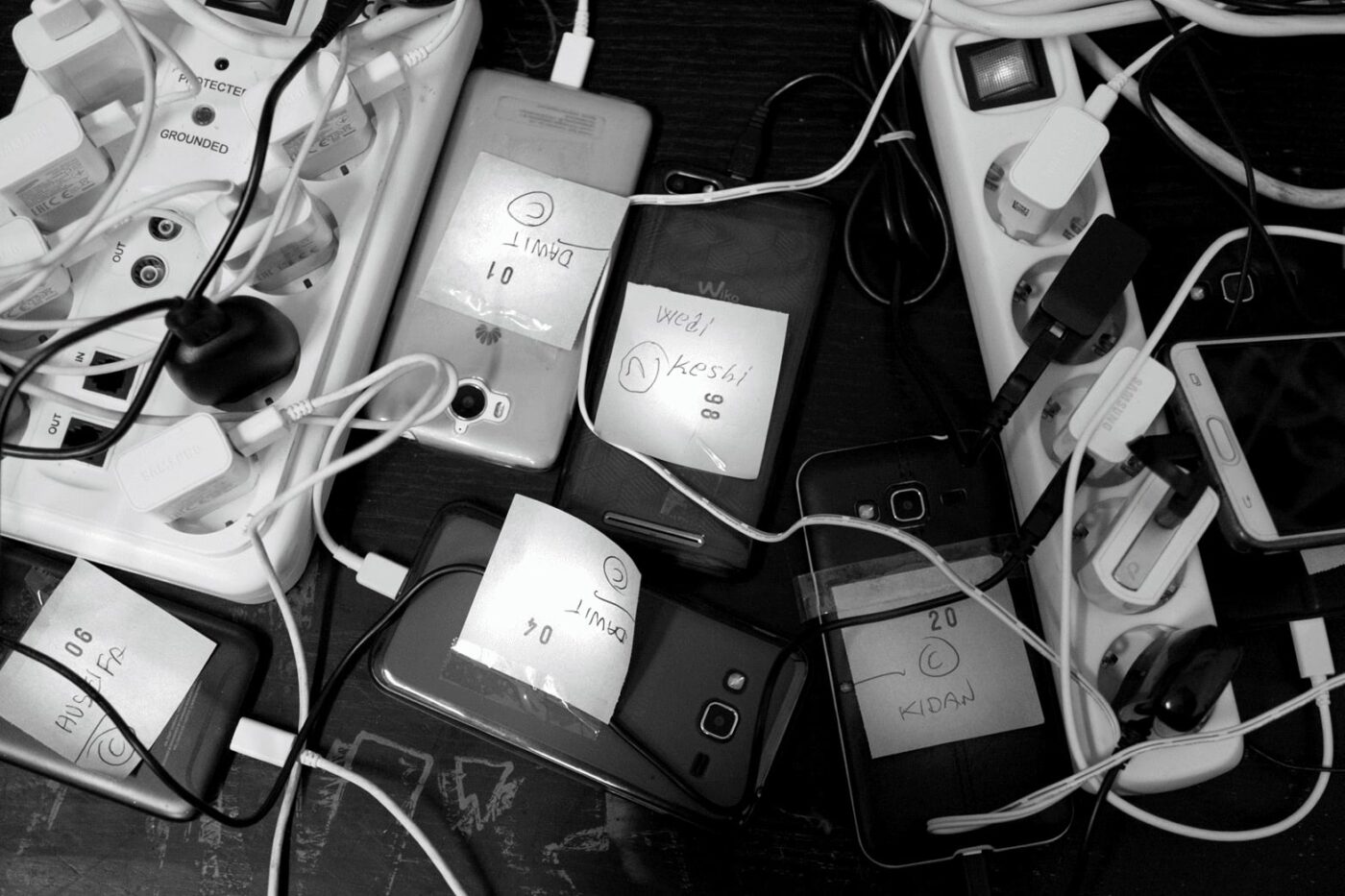Node 02 - Experimental
Ended
February - June 2023
Countries: Italy
Nodes: Ventimiglia
Ventimiglia
Ventimiglia, “la Porta Occidentale d’Italia”, is a porous borderland, displaying an important tradition of commerce, custom, and smuggling activities.
Ventimiglia, as many other border cities in recent years, has been radically shocked by the 2015 reintroduction of permanent controls. In fact, migrants arriving in the city via Central Mediterranean and Balkan routes, with the hope of smoothly crossing the border and reaching France or other European countries, are often blocked and forced to temporarily settle in urban spaces of precarious conditions. Those recent mobilities are largely the outcomes of the so-called ‘Long Summer of Migration’, which has led hundreds thousands of people to flee armed conflicts and poverty. Ever since, we have witnessed the spectacle of border controls, check points, arrests, detentions, pushbacks, deaths, forced transfers and consequent resistances and counter conducts. Ventimiglia has thus constituted for the last eight years one of those spaces of contention resembling battlefields among undocumented migrants, Italian and French police, NGOs, smugglers, and pro/anti migrants citizens and groups.
Controls are articulated through an integrated set of checkpoints, fixed and mobile, intermittently activated and deployed deep in the territory, usually in areas most prone to clandestine transit. For migrants, it is not enough to cross the border, indeed the border chases them. If they are caught in a 10-kilometre border zone, which the police often extend illegally, migrants can be legitimately sent back to Italy.
The political battleground I have analysed in the Ventimiglia region can be defined as the intersection between three key actors: migration flows, the presence of State control and the activity of solidaristic networks. These terms are in a dialectical relationship and each one, by different ways, intervenes in the permanent de/re-bordering processes. Alliances and frictions among different actors on the territory constitute the dynamic of border geography in which I take part as both activists and researchers with the collective Progetto20K.
In conclusion, it is worth mentioning that despite the control apparatus mobilised, crossings still take place, and Ventimiglia remains a busy transit point. As things stand, the strength of the social movement of migration – a mixture of determination, creativity and cooperation – is greater than that of the border power, in such an area it is still possible to cross. On the other hand, as supportive people who believe in freedom of movement, the point that is crucial to emphasise is the unnecessary, cruel, physical and psychological suffering that the border entails. Almost everyone crosses it, but often with difficulty, paying a great toll in material and economic terms, even to death.
